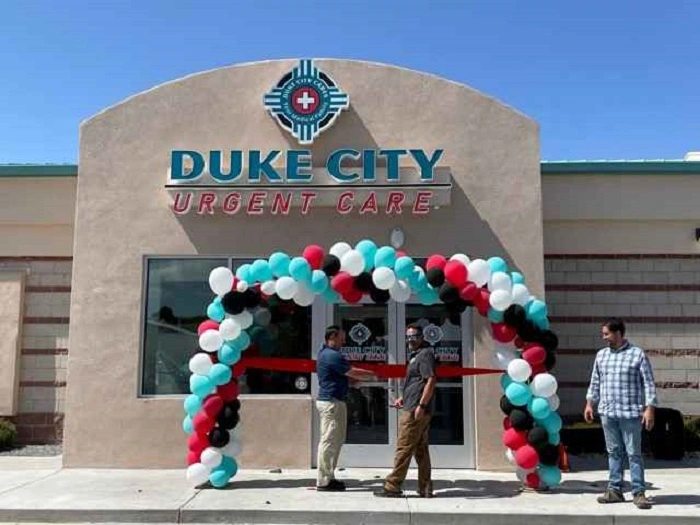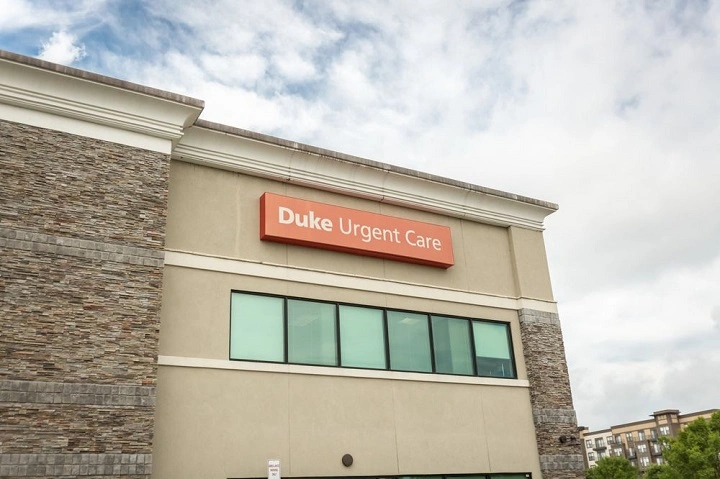Health never waits. A fever doesn’t wait until Monday morning. A sprained ankle doesn’t glance at your calendar. A sore throat doesn’t care if your doctor’s office is closed.
That is the reason for urgent care. It is for when you can’t wait but you don’t require the whole emergency room either. It’s the middle ground. Safe. Quick. Reliable.
Duke Urgent Care is part of Duke Health. Duke Health is trusted around the world. It is known for research, for its hospitals, for its doctors. That same quality is present in every urgent care center.
This handbook will take you in the door at Duke Urgent Care. You will know what it is. What it’s used for. When to visit. How much it will cost. Where to find it. And why do so many people visit?
You’ll be prepared by the time you’re done. You’ll know what to expect. And you’ll know why Duke Urgent Care is a good friend to your wellness.
What Is Duke Urgent Care
- Duke Urgent Care is a walk-in facility. You don’t need an appointment. You go, sign in, and wait to be seen.
- It is for non-life-threatening situations. Things that aren’t bad but need to be addressed.
- It is open evenings and weekends. It also opens on most holidays. That makes it accessible to working families.
- Providers at Duke Urgent Care include doctors, physician assistants, and nurse practitioners. They are trained to diagnose and treat in a rush. They belong to the Duke Health system. That means they can refer you to specialists if you require additional care.
- It is convenient. It is fast. It is care that fits into real life.
When to Go to Duke Urgent Care

Common Reasons
- Persistent fever that won’t resolve
- Cold and flu
- Ear infection
- Strep throat
- Persistent cough
- Sprains and strains
- Cuts requiring stitches
- Minor burns
- Rashes or allergic reactions
- Urinary tract infections
- Mild asthma exacerbations
- Nausea or vomiting
- Dehydration
When Not to Go
- Chest pain or pressure
- Severe shortness of breath
- Stroke symptoms such as slurred speech or facial droop
- Severe bleeding
- Seizures
- Head injuries with loss of consciousness
Those need emergency care. Call 911 or go to the ER right away.
Urgent care is moderation. It keeps the ER open for actual emergencies. And it keeps you away from waiting days for a primary care appointment.
Duke Urgent Care Services
Illness Care
- Diagnosis of flu, strep, and cold
- Prescription of required medications
- Asthma and allergy treatment
- Vaccinations including flu shots and tetanus
Injury Treatment
- X-rays for a potential break
- Splints for a broken bone
- Stitches for a cut
- Minor burn treatment
- Cleaning and dressing a wound
Testing
- Flu and strep tests
- COVID-19 testing
- Urine tests for an infection
- Blood tests for most conditions
Preventive Care
- Physicals for school or work
- Referrals to Duke experts
- Follow-up coordination with your physician
All of this broad scope in one place means that you can get treated all in one place. You don’t have to hop from location to location.
Why Choose Duke Urgent Care
There are many urgent care facilities. But Duke Urgent Care is different from the others.
- It’s part of Duke Health. And that alone sets it apart. Duke Health is a name that resonates worldwide. Patients know the name. Doctors know the research.
- Extended hours for the convenience of patients
- Lower-priced than a trip to the ER
- Lab and X-ray equipment on site
- Access to electronic medical records shared across Duke Health
- Welcoming staff and compassionate providers
You are not a number. You are a patient in a system built on quality.
Locations of Duke Urgent Care
Duke Urgent Care has several centers. They have them spread across the Triangle region of North Carolina. This makes it easier for them to be available to students, professionals, as well as families.
Main Locations
- Duke Urgent Care Croasdaile in Durham
- Duke Urgent Care Brier Creek in Raleigh
- Duke Urgent Care South in Durham
- Duke Urgent Care Pickett Road in Durham
- Duke Urgent Care Heritage in Wake Forest
All of the facilities share Duke standards. Some hours differ. But the quality is the same.
Patients can look at hours online prior to going.
What to Expect
Most individuals worry about visiting urgent care. But the process is straightforward.
- Arrival – Show up. Check in using your ID and insurance card.
- Triage – A nurse takes your symptoms and vital signs.
- Exam – A provider sees you. Tests may be ordered.
- Treatment – You get medication, sutures, or other treatment.
- Instructions – You are sent home with clear written instructions.
- Follow-up – Notes and results are in Duke MyChart.
Most visits are faster than an ER visit. Wait times are unpredictable, but urgent care is intended to move quickly.
Urgent Care vs ER vs Primary Care
| Feature | Urgent Care | ER | Primary Care |
| Best For | Minor illnesses and injuries | Life-threatening emergencies | Routine and chronic care |
| Hours | Extended evenings and weekends | Always open | Business hours |
| Cost | Lower than ER | Highest | Lowest |
| Wait | Shorter than ER | Often long | Based on schedule |
| Services | X-rays, labs, treatment | Full hospital | Basic labs, referrals |
Urgent care is the compromise. It’s cost- and time-saving.
Patient Stories
It makes it personal.
- A mother brought her son who had a deep gash. He was frightened. Staff talked softly, cleaned the wound, stitched it. He left with a smile and a sticker.
- A student was in with flu-like symptoms. The test was brief. The medication was available that same day. She rested and got better before exams.
- A patient with a sprained ankle worried it was broken. X-rays revealed no break. He received a splint, guidance, and relief.
These are familiar stories. Quick care. Compassionate staff. Genuine outcomes.
Tips for Your Visit

- Have your ID and insurance card.
- Use Duke MyChart for pre-check-in.
- Have a list of current medications with you.
- Look up the hours of the closest location.
- Arrive early on weekends to reduce waiting time.
These small actions make your visit easier.
Also Read: Duke Health Careers: Pathways to Growth, Service, and Opportunity
Technology makes it happen faster
- Duke MyChart – Access test results, visit summaries, and prescriptions online.
- Digital X-rays – Quick imaging and quick results.
- Integrated Records – Your urgent care visit is available to your Duke doctors.
This integration makes Duke Urgent Care more than just a clinic. It’s part of your entire experience.
Cost and Insurance
Cost is a concern for many families.
- Urgent care is cheaper than the ER.
- All insurance plans are welcome. Co-pays are generally the same as a primary care visit.
- If you don’t have insurance, self-pay options are available. Duke also offers online cost estimates.
This keeps the care affordable and open.
The Human Side
Care isn’t just medicine. It is about individuals.
Patients will tell you the staff listen. They explain clearly. They reassure patients when they are worried.
This empathy is a hallmark of Duke Urgent Care. It is Duke Health’s culture.
Future of Duke Urgent Care
The look of healthcare is changing. Duke Urgent Care adjusts.
- Other centers are open.
- Telemedicine expands.
- Technology further trims wait times.
The mission never wavers. Quicker access. Better connection. Stronger care.
FAQs
Is Duke Urgent Care open seven days a week?
Yes. Most offices open seven days a week.
Do I need an appointment?
No. Walk-ins are welcome.
Can children be treated?
Yes. Providers are pediatric-trained.
Can urgent care handle broken bones?
Yes. They can splint and refer out if needed.
Will my family doctor know about it?
Yes. Records are sent through Duke Health.
Conclusion
Duke Urgent Care is available for life’s surprise health problems. It is not the ER. It is not the doctor’s office. It is the connection in between.
It offers speed, compassion, and dependability. It is affordable. It has access to one of the world’s best healthcare systems.
When an unexpected illness strikes you, Duke Urgent Care is ready for you.


